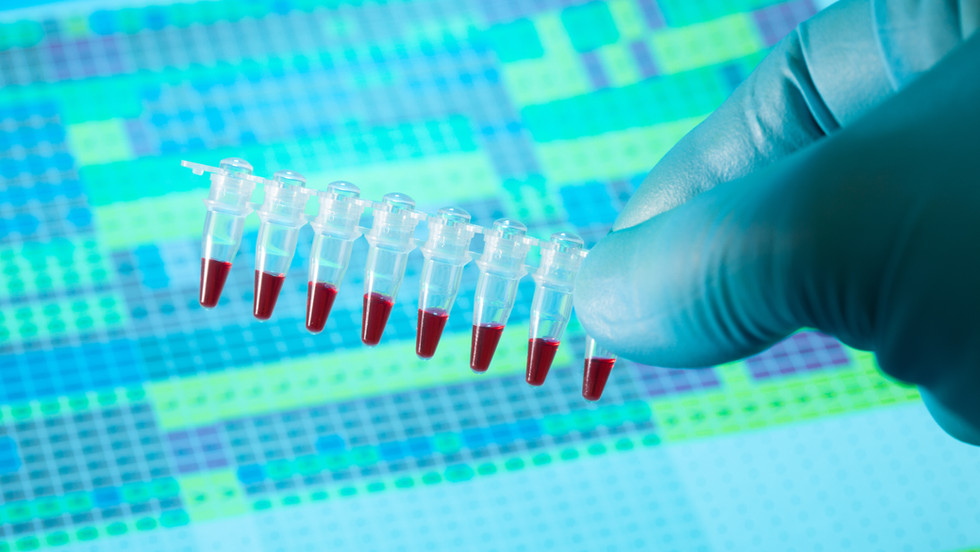
NucleoGene RNA to cDNA Mix (cDNA Synthesis Kit) (5X)

NucleoGene cDNA Synthesis Kit provides a rapid and sensitive method for first-strand cDNA synthesis, which displays excellent linearity across a wide range of starting material. This gives the same relative representation in cDNA templates, regardless of gene abundance, making it excellent for use in qPCR studies.
NucleoGene cDNA Synthesis Kit contains a highly-pure reverse transcriptase and optimized buffer system, which includes a unique blend of random hexamers and anchored oligo (dT) primers to deliver the highest quality qPCR ready cDNA. This makes the NucleoGene cDNA Synthesis Kit ideal for working with limited sample volumes, such as micro dissected samples and tissue biopsies (down to 1 pg of input RNA), to reverse transcribe precious RNA into stable cDNA ready for accurate real-time quantification. The unique blend of random hexamer primers and anchored oligo dT in the Buffer also ensure unbiased 3’ and 5’ coverage and reverse transcription of all regions.
NucleoGene cDNA Synthesis Kit can be used with Probe and SYBR® Kits for real-time RT-qPCR without compromising on quality, giving real-time results.
- Efficient – high-target affinity, coupled with a buffer system for improved yield of full-length cDNA
- Unbiased – optimized mix of random hexamers and anchored oligo dT primers for complete 5’ to
3’ RNA sequence representation
- Sensitive – lower Ct values from a broad range of input cDNA concentrations, enabling accurate
detection of very low-copy targets
- Robust – reliable reverse transcription under challenging conditions, including complex templates
and in the presence of inhibitors
- Gene expression analysis
- Tissue biopsy analysis
- RNA target detection
- Pathogen detection
Intact RNA of high purity is essential for sensitive RT-PCR detection. RNA should have a minimum A260/A280 ratio of 1.7 or higher.
Either total RNA or mRNA can be used in the reverse transcription reaction. Total RNA is generally sufficient for most RT-PCR analyses. However, if desired mRNA can be easily obtained using a PolyA NucleoGene Total RNA Extraction Kit.
The amount of RNA required for detection depends on the abundance of the transcript of interest. In general 1 ng to 1 μg total RNA or 0.1-100 ng mRNA are recommended.
Denaturation of RNA and primer at 70°C for 5 minutes can remove secondary structures that may impede long cDNA synthesis. However, this step can be omitted in some cases. We recommend incubation at 42°C for one hour for maximum yield and length. However, many targets can be detected after a much shorter incubation time. For example, 5 minutes incubation is enough for a 2 kb cDNA synthesis.
Oligo d(T) priming is preferred for most applications because it ensures that all cDNA copies terminate at the 3 ́ end of the mRNA and produces the longest contiguous cDNA. An anchored oligo-d(T) primer [d(T)23VN] forces the primer to anneal to the start of the polyA tail, thereby preventing priming at internal sites in the polyA tail (1). However, two other priming choices are possible if desired. The Random Primer Mix is an optimized mix of hexamer and d(T)23VN primers. It provides random priming sites covering the entire RNA templates including both mRNAs and non-polyadenylated RNAs (such as ribosomal RNAs). The Random Primer Mix yields shorter cDNAs on average and can be used for the detection of multiple short RT-PCR products. Random Primer Mix offers good performance in a wide range of RNA templates.
When a gene-specific primer is used in a cDNA synthesis reaction, the cDNA product can be used only for amplification of that transcript. This priming method gives good results when the amount of RNA is limiting (below 10 ng) and only one particular cDNA is desired.